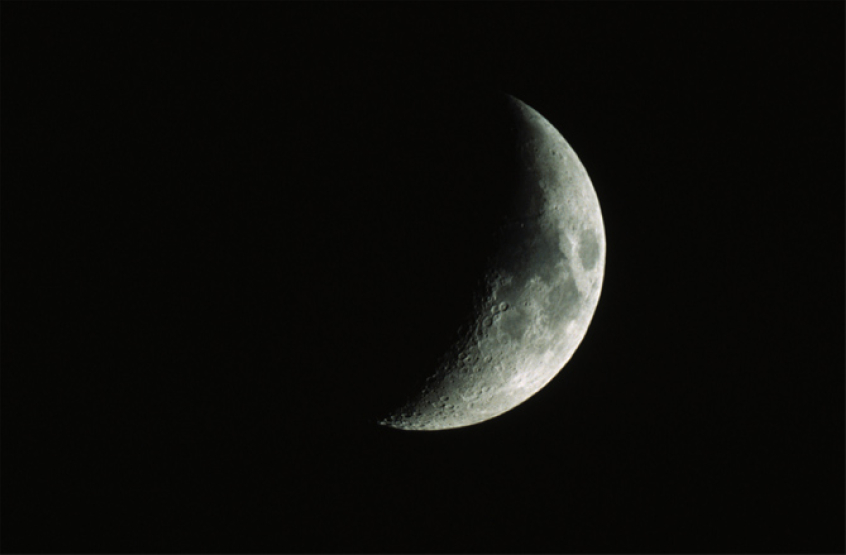It's very odd, the whole signs-of-the-times thing. Many conservative Christians are deeply opposed to astrology, for very good reasons, but get terribly excited about astronomical phenomena that seem to tie in with biblical prophecy. You can't have it both ways, surely: either the stars and planets do foretell the future, or they don't.
The latest event to get prophecy-watchers excited is Friday's Black Moon. This is when there are two new moons in a calendar month (a blue moon is when there are two full moons). And you can't actually see it, because it's dark; the sunlit side of the moon is facing away from the earth.

That hasn't stopped people reading things into it when perhaps they really shouldn't. The Now The End Begins (NTEB) website writes: "The first day of September brought with it a 'ring of fire' solar eclipse – where the moon falls in line with the Earth and the sun above Africa, making it appear as if the sun had darkened. This year, the Black Moon phenomenon has a twist to it - it will usher in the Jewish Feast of Trumpets."
NTEB avoids specifics, but says: "In the Bible, the First Advent of Jesus Christ happened on or near the Feast of Trumpets, and it is highly likely that His Second Advent will happen around that time as well... So this Friday night enjoy the visual feast of the Black Moon as it rises over the night sky. But have your Bible close by and pay attention. You never know what can happen. God loves to celebrate His Feast Days...are YOU ready for what comes next?"
Now, cards on the table: I think this sort of thing, with its breathless hints at a possible second coming on Saturday, is nonsense. It's specific enough to make you vaguely curious but not enough to lay the author open to the charge of being wrong.
Yes, I am ready for what comes after the Black Moon (and what a delightful title! So dark and mysterious). I'm on the Christian Today rota to work this weekend, so I shall be at the desk in the morning and a church event in the afternoon. Neither of these are likely to be interrupted by anything apocalyptic.
So yes, I'm a sceptic about these things. I don't think the Bible provides us with a road-map for the future. When I think about the Second Coming of Christ, I remind myself that no one knows the day or the hour (Matthew 24:36). I regret the time Christians waste trying to interpret Revelation with the help of astronomical charts. The whole Blood Moons thing passes me by.
It's perfectly true that in the past Christians have been accepting of the idea that the movement of the stars and planets had a spiritual significance. As a recent Christian Today article pointed out, no less a figure than John Calvin believed planetary bodies could influence our bodies medically; and while Martin Luther spoke rather disparagingly of his friend Melanchthon's interest in astrology, he didn't condemn it.
And in many ways, this isn't surprising. The stars are infinitely beyond us, but we can see them. Heavenly bodies move in complex but predictable ways. Perhaps, after all, they are God's way of communicating with us. Perhaps he's writing in letters of fire across the dark sky, for those with understanding to see.
It's a tempting thought. But the answer to those who believe this is found right back at the beginning of the Bible, in the book of Genesis. At a time when it was taken for granted that the stars and planets represented actual gods and goddesses, the writer of Genesis 1 says: "They're just lights." "And God said, Let there be lights in the expanse of the sky to separate the day from the night...." (verse 14). The sun and moon are not gods; the stars are just an afterthought ("He also made the stars", verse 16).
The movement of the stars and planets is truly wonderful and endlessly fascinating. But we take the wrong message from this if we try to use them to read the future. The point the biblical writers are making is that they are wonderful because God made them, not because they contain hidden mysteries.
Blood moons, blue moons, black moons: they're just moons, but that is quite miraculous enough.
Follow Mark Woods on Twitter: @RevMarkWoods









